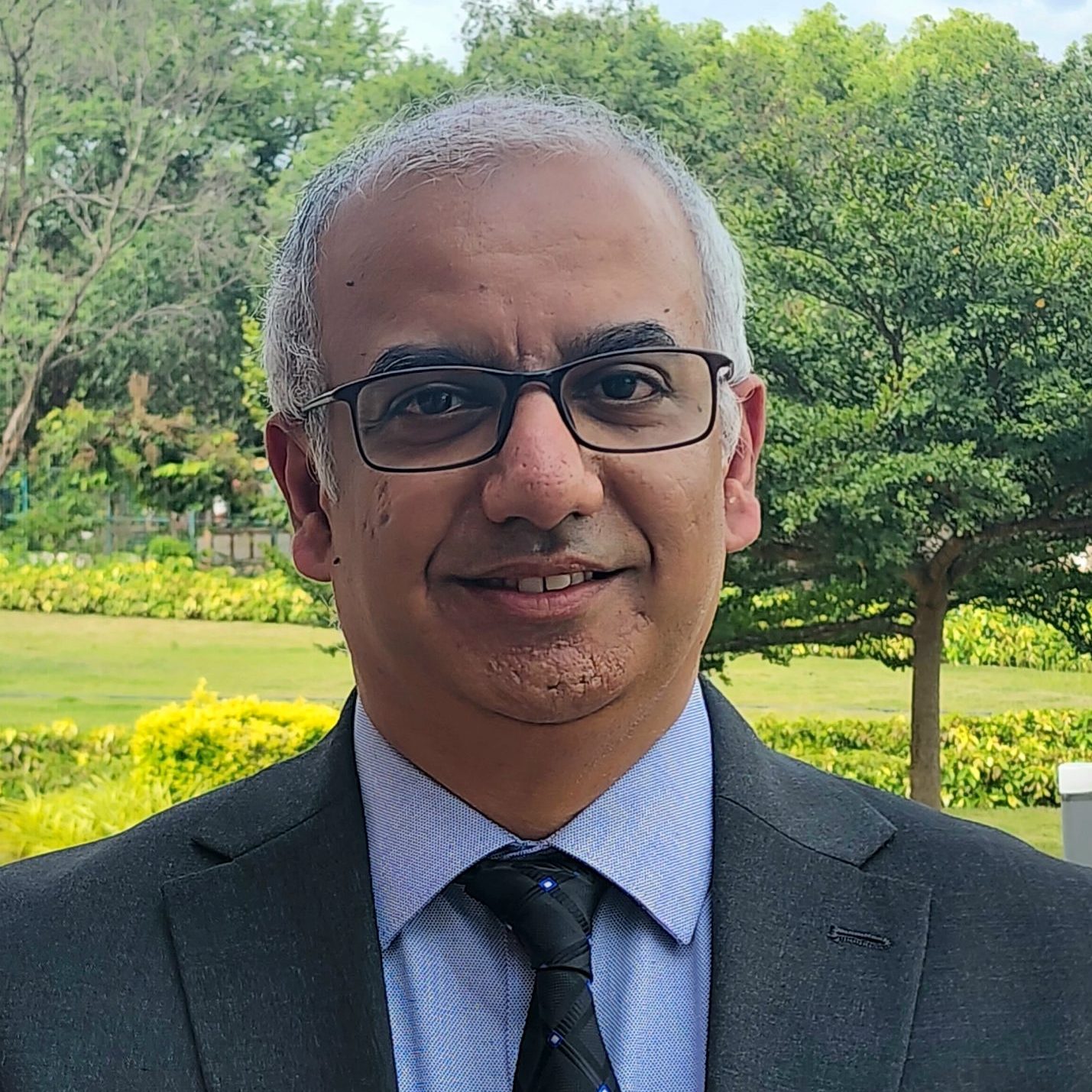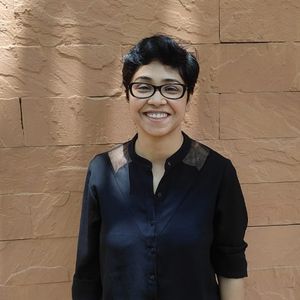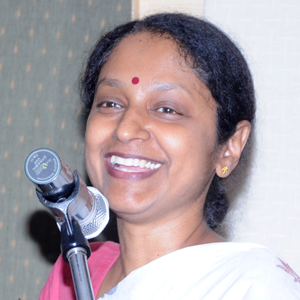In 1988, NLSIU launched India’s first 5-year integrated BA LLB (Hons) programme. The success of this programme has secured NLS’s legacy as the institution that radically disrupted legal education in India. Three decades after this bold experiment, NLSIU launched a new interdisciplinary 3-year LLB (Hons) Programme in 2022 which reimagines legal education for the 21st century.
The 3-year LLB (Hons) is a postgraduate professional degree programme that is open to graduates from all disciplines. It is a qualifying degree for admission to legal practice. The programme meets all requirements of the Bar Council of India, and builds on top of that to deliver a rigorous legal education in keeping with NLSIU’s unique curricular and pedagogic approach. The programme is structured around interdisciplinary study of the law combined with experiential learning. The programme will bridge theory and practice. It is designed to produce lawyers who meet the challenges of the 21st century.
The 3-year LLB (Hons) is a full-time programme. Admission to the programme is on the basis of all-India National entrance test (NLSAT-LLB). The Academic Year usually commences on July 1. Please note, 75% attendance is mandated for each course offered under the programme.
Related Videos
You can watch all programme related videos on the ‘Videos’ tab of this page.
NLSIU announces admission to its 3-year LL.B (Hons.) programme for the academic year 2025-26. The academic year will commence on July 1, 2025.
Application Deadline Extended to March 30, 2025 | View Corrigendum
Eligibility
Any person holding a Bachelor’s degree in any discipline from a recognised national or international University is eligible to apply to the programme. Applicants in the General Category should have graduated with an aggregate of not less than 45% of total marks. Applicants in the SC/ST/OBC-NCL/PWD Category should have graduated with an aggregate of not less than 40% of total marks. Students in the final year of their Bachelor’s degree are also eligible to apply. However, their final offer of admission shall be contingent upon successful completion of their Bachelor’s degree with the minimum aggregate marks specified above. Proof of completion of the qualifying degree has to be submitted no later than December 31, 2025.
International Students
Candidates can apply for the NLSAT – International Examination for “international student” category, if they are a citizen of a country other than India.
Admission notification for Academic Year 2025-26 is released! For more details, click here.
International students may apply through internationaladmissions.nls.ac.in on or before March 30, 2025.
Please note: The duration of the NLSAT International examination has been extended from 120 minutes to 150 minutes. View Corrigendum.
Admission Process
The maximum intake for the 3-year LL.B (Hons.) programme in the Academic Year 2025-26 is 120 and ONLY students qualifying as per the criteria set out below will be admitted. Admission to the programme will be through an all-India written admissions test, the National Law School Admissions Test (NLSAT-LLB).
NLSAT – LLB
All candidates seeking admission to the programme shall appear for the NLSAT-LLB. The NLSAT-LLB will have a single question paper comprising two parts – Parts A and B. All candidates shall be required to attempt both parts of the question paper. The examination shall be for a duration of 150 minutes.
Part A
Part A of the NLSAT-LLB paper will consist of Multiple-Choice Questions, and shall be for a maximum of 75 marks. Each question will be of one mark. 0.25 marks shall be deducted for each wrong answer, and for each unanswered question. Part A of the NLSAT-LLB will consist of questions relating to (a) Comprehension; (b) Current Affairs; and (c) Critical Reasoning.
Part A will constitute the first stage of the admissions process. A rank list of candidates will be prepared based on their performance in Part A of the NLSAT-LLB. To be eligible for evaluation of Part B of the NLSAT-LLB paper, a candidate should have secured more than zero marks in Part A of the paper.
From amongst these eligible candidates, Part B of the NLSAT-LLB answer scripts will be evaluated in a ratio of 1:5 based on performance in Part A. That is, five candidates per seat available will qualify for evaluation of Part B of the examination.
Part B
Part B shall consist of subjective questions, which shall be for a maximum of 75 marks.
In Part B, candidates will be tested on the following:
(a) Legal Aptitude/Reasoning: Legal aptitude will consist of problem-based questions. Students will be expected to write short answers in response (200-250 words). Prior knowledge of the law is not expected.
(b) Analytical Ability: Candidates will be required to write an essay of no more than 500 words on the topic/question. They will be tested on their knowledge of the issue, the ability to make cogent written arguments and the ability to write a well-structured essay. Knowledge of the law is not expected.
A fresh and final rank list shall be prepared based on the cumulative performance in Parts A and B of the NLSAT-LLB. Offers of admission shall be made according to this final rank list subject to the candidate satisfying the following conditions:
(a) The candidate should have secured more than zero marks in both Parts A and B of the NLSAT-LLB.
(b) A candidate seeking admission in the General Category or EWS category must secure a score above the 75th percentile of the eligible candidates in the aggregate score of Parts A and B. A candidate seeking admission in the SC or ST or OBC-NCL or PWD category must secure a score above the 40th percentile of the eligible candidates in the aggregate score of Parts A and B.
In case where more than one candidate obtains the same aggregate score of Part A and Part B, the marks obtained in Part B shall be used to break the tie between them and determine their rank.
Note: The applicable reservation policy shall be applied at each stage of the admissions process.
For any queries regarding NLSAT, please write to
Important Dates
- The NLSAT-LLB will be held on April 27, 2025 (Sunday), between 10.00 am to 12.30 pm in specified centres across the country.
- Application forms for the programme are now available at nlsatadmissions.nls.ac.in
- Application fees of Rs. 2500 (Rupees Two Thousand Five Hundred only) shall be payable at the time of submission of the application. Candidates belonging to SC/ST/OBC-NCL/PWD/EWS category shall be required to pay Rs. 2000 (Rupees Two Thousand only).
- Application deadline extended till 11:59 pm on March 30, 2025.
- The final admissions list will be published by the end of May 2025.
- A candidate’s provisional admission will become final only after verification of the original documents and payment of fees.
- The Academic Year will commence from July 1, 2025.
The syllabus for the NLSAT-LLB will be available on the website of the University. Fees and other details of the programme are also available on the University’s website. NLSAT-LLB will be held in several centres across the country. The list of centres will be available on the application portal.
Intake and Reservation
The total number of seats available are 120 (One hundred and twenty). Seats shall be reserved as follows:
- Scheduled Castes – 15%
- Scheduled Tribes – 7.5%
- OBCs – 27%
- EWS – 10%
- 5% of the total intake is reserved horizontally for Persons with Disabilities (PWD)
- 30% of the total intake is reserved horizontally for women
- 25% of the total intake is reserved horizontally (compartmentalised) for Karnataka Students.
Karnataka Students Category:
1. Candidates who have studied for not less than 10 years in a recognized educational institution in Karnataka shall be considered as ‘Karnataka Students.’
2. Candidates who have not completed ten years of study in Karnataka shall be eligible to apply under the Karnataka Students category if they fall under any of the below categories:
a. Children of defence personnel/ex-servicemen, who at the time of joining service, have declared their hometown to be in the State of Karnataka, and who have served or are serving outside Karnataka, corresponding to the candidate’s years of study outside Karnataka.
b. Children of employees of the Karnataka State Government who have served or are serving outside Karnataka corresponding to the candidate’s years of study outside Karnataka.
c. Children of serving or retired employees belonging to the Karnataka cadre of the All India Services (IAS/IFS/IPS), who have served or are serving outside Karnataka corresponding to the candidate’s years of study outside Karnataka.
d. Children of working or retired employees in the Central Armed Police Force service, who upon joining service declared their hometown to be in the State of Karnataka, and who have served or are serving outside Karnataka, corresponding to the candidate’s years of study outside Karnataka.
Illustration: If the candidate has studied in Karnataka for three (3) years, they must prove that their parent/s were serving outside Karnataka for at least seven (7) years corresponding to their own period of study outside Karnataka.
If the candidate has not studied in Karnataka continuously for at least one (1) year, they must prove that their parent/s were serving outside Karnataka for at least ten (10) years corresponding to their own period of study outside Karnataka.
3. Eligible candidates must keep their Study Certificates issued by their educational institutions and other relevant documents ready to be submitted at the time of admission.
Apply for the ProgrammeThe official admission notification containing the above details for the Academic Year 2025-26 has been released. View the official notification here.
Course Structure & Credit Requirements
As part of the 3-year LL.B (Hons.) programme, students will be offered a range of core courses (mandatory for all students), and electives.
Core Courses
Core courses provide an introduction to an area of study. These include foundational law subjects as well as interdisciplinary courses (See table below). Interdisciplinary courses offer students a perspective on how to understand the law, and to place the study of law in context.
Every credit for a core course shall entail 15 hours of classroom teaching. All courses are generally for four credits. These courses entail 60 hours of classroom teaching and include a continuing assessment component comprising assignments, research papers, presentations, class participation, moot court exercises, response papers, etc.
Elective Courses
To allow students to explore their areas of interest in a systematic and comprehensive manner, NLSIU offers a range of elective courses. In addition to NLSIU’s own faculty, electives are often taught by practitioners and other experts who come in as Guest Faculty. This allows students to interact with and learn from a pick of the very best in diverse areas of law. The list of courses available in a particular trimester will be notified at the end of the previous trimester.
Credits assigned to an elective will vary by course load and the number of lecture hours. A maximum of four credits is available for a single elective course. When the term “elective” is used in the table below, it implies that every student shall either opt for a single elective of 4 credits, or multiple electives totalling up to 4 credits.
Since elective courses are taught at advanced levels, they entail heavier reading, research and writing requirements. Hence, the credit distribution varies according to the following scale:
- One Credit: 15 hours of classroom teaching
- Two Credits: 30 hours of classroom teaching
- Four Credits: 40 hours of classroom teaching
Some electives will be in the form of clinics and practicums. These may entail lesser classroom engagement, and greater out of class evaluation components. The credits assigned to each clinical elective shall be notified in advance.
Every student has to complete a minimum of 48 credits in an academic year (between core and electives) and a total of 144 credits over the three years.
To view past and current electives offered by NLSIU, visit our Course Catalogue.
Student Internships
The internship programme aims to expose the students to the practice of law. Internships may be undertaken in lawyers’ chambers, courts, administrative offices, quasi-judicial establishments, prosecution departments, police and correctional institutions, commercial corporate establishments, Government Law Offices, legal aid centres, legislative secretariat, think-tanks, research institutions, non-governmental organizations etc. It aims to teach professional skills, essential aspects of professional ethics and social responsibility issues and management of challenging situations in practical and professional life. Internships allow students to explore diverse substantive areas of law and different sites of legal practice and equip students to decide on future career trajectories. They often translate into job opportunities. Students need to compulsorily undertake an internship each year of the programme, during term breaks, as specified in the University’s Internship Policy.
Course Curriculum
Year 1
Contracts I (4 credits)
Law of Torts (4 Credits)
Legal Methods (4 Credits)
Introduction to Law and Social Science (4 Credits)
Contracts II (4 credits)
Criminal Law I (4 credits)
Property Law (4 credits)
Jurisprudence (4 credits)
Constitutional Law I (4 credits)
Family Law I (4 credits)
Criminal Law II (4 credits)
Corporate Law (4 credits)
Year 2
Civil Procedure Code (CPC) I (4 credits)
Family Law II (4 credits)
Constitutional Law II (4 credits)
Alternative Dispute Resolution (A.D.R.) (Clinic I) (4 credits)
Drafting of Pleadings & Conveyancing (4 credits)
Administrative and Regulatory Laws (4 credits)
Law of Evidence (4 credits)
Elective
Public International Law (4 credits)
Labour Law I (4 credits)
Taxation Laws (4 credits)
Elective
Year 3
Labour Law II (4 credits)
Environmental Law (4 credits)
Elective
Elective
Law and Social Transformation (4 Credits)
Professional Ethics (4 credits)
Elective
Elective
Interpretation (4 credits)
Elective
Elective
Elective
Moot Courts and Internships
Academic Calendar for A.Y. 2024-25 | Trimester III (March 2025 – May 2025)
| Date | Day | Particulars |
| 4-Mar-2025 to 7-Mar-2025 | Tuesday Wednesday Thursday Friday |
Repeat exams for Trimester II |
| 4-Mar-2025 | Tuesday | Commencement of classes – core and elective |
| 31-Mar-2025 | Monday | Holiday Khutub-e-Ramzan |
| 10-Apr-2025 | Thursday | Holiday Mahaveera Jayanthi |
| 14-Apr-2025 | Monday | Holiday Dr. B.R. Ambedkar Jayanthi |
| 18-Apr-2025 | Friday | Holiday Good Friday |
| 1-May-2025 | Thursday | Holiday May Day |
| 17-May-2025 | Saturday | Deadline for Elective Term/Seminar paper submission |
| 23 May 2025 | Friday | Last day of classes (core and elective) |
| 24-May-2025 | Saturday | Oral Presentations for Elective Courses |
| 26-May-2025 to 31-May-2025 |
Monday Tuesday Wednesday Thursday Friday Saturday |
End Term Examinations |
| 17-Jun-2025 to 20-Jun-2025 |
Tuesday Wednesday Thursday Friday |
Repeat exams for Trimester III |
| TBA | TBA | Commencement of AY 2025-26 Trimester I classes (core and elective) |
*This date is subject to change depending on final holiday list from the University.
Fee Structure for AY 2025-26 (First Year Students)
Admission fee (one time) – Rs. 13,000/-
Tuition and facilities fee (per annum) – Rs. 2,96,000/-
Off-Campus housing fee (per annum) – Rs. 1,75,000/-
Total fee per annum – Rs. 4,84,000/-
One Time Refundable Deposit
Refundable deposits for SC/ST category students – Rs. 17,500/-
Refundable deposits for other students – Rs. 22,000/-
The total amount payable by SC/ST category students is Rs. 5,01,500/-
The total amount payable by other students is Rs. 5,06,000/-
View the official fee notification.
Note:
- Housing Fee includes meal plan for breakfast, lunch, dinner and an evening snack.
- All students are required to reside on off-campus housing provided by the university.
- Refundable deposit will be refunded either upon graduation or admission withdrawal. The refund will be subject to the deduction of applicable convocation fees, fees for issue of certificates, and other outstanding dues, if any.
View the official fee notification for existing students for AY 2025-26:
Financial Aid
The University offers means-based scholarships. To know more about NLSIU’s financial aid options for students, click here.
Fee Structure for International Students for AY 2025-26 (First Year Students)
Admission fee (one time) – Rs. 39,000/-
Tuition and facilities fee (per annum) – Rs. 8,88,000/- p.a.
Off-Campus housing fee (per annum) – Rs. 1,75,000/- p.a.
Total fee per annum – Rs. 11,02,000/-
One Time Refundable Deposit
Refundable deposits – Rs. 66,000/-
The total amount payable at the time of admission, by international students is Rs. 11,68,000/-
View the official fee notification.
Note:
- Housing Fee includes meal plan for breakfast, lunch, dinner and an evening snack.
- All students are required to reside on off-campus housing provided by the university.
- Refundable deposit will be refunded either upon graduation or admission withdrawal. The refund will be subject to the deduction of applicable convocation fees, fees for issue of certificates, and other outstanding dues, if any.
The fee refund policy for the Academic Year 2025-26 is available here.
Faculty Videos | 3-Year LLB (Hons)
Build a strong foundation in law with our 3-year LL.B (Hons.) programme. Sahana Ramesh, Assistant Professor of Law at NLSIU, gives an overview of the unique curricular and pedagogic approach of this postgraduate professional degree programme.
NLSIU faculty Ashrita Prasad Kotha talks about how the 3-Year LL.B. (Hons.) programme can help you kick-start your legal career. It can unlock various options for students of different backgrounds like litigating at the bar, working in academia, practicing as a judge, working at a law firm, or becoming an in-house counsel.
Students Speak | 3-Year LLB (Hons)
Why did you choose law? | Our 3-Year LL.B. (Hons.) students come from diverse backgrounds, with different motivations for studying law.
Apratim, a 1st year student in our 3-Year LL.B. (Hons.) programme, talks about his passion for legal technology, and the support he receives from #NLSIU faculty in further exploring his topics of interest.
Vibha, a 2nd year student in our 3-Year LL.B. (Hons.) programme, shares her experience being a part of a vibrant student community at NLSIU.
Veena, a 1st year student in our 3-Year LL.B. (Hons.) programme, talks about why she made the switch from corporate taxation to study law at NLSIU.
NLSIU Students Speak | Saumitra, a 1st year student in our 3-Year LL.B. (Hons.) programme, talks about how NLSIU encourages students from different backgrounds gain a holistic view of legal subjects.
NLSIU Students Speak | Rithwik, a 2nd year student in our 3-Year LL.B. (Hons.) programme, talks about the various internship opportunities he has had, and the diversity of classrooms at NLSIU.
Nishtha Jindal, a 3-Year LL.B. (Hons.) student shares her NLSIU experience.
Videos from 2022 & 2023
NOTE: For updated information on the current academic year, please refer to the latest videos from 2024.
Information Session – February 2023
Here’s the full recording of the live Information Session on NLSIU’s 3-Year LL.B. (Hons.) programme held on February 20, 2023. The session covered various aspects of the programme including an overview, eligibility criteria, and the admissions process. Attendees were able to raise questions in a live Q&A section in the Session as well.
NLSIU faculty Dr. Atreyee Majumder talks about the importance of interdisciplinary approach to legal education in the newly launched 3-Year LL.B (Hons.) programme at the University.
Dr. Mrinal Satish, Professor of Law at the University, gives an overview of NLSIU’s pedagogy and the structure of the new 3-year LL.B (Hons.) programme.
Dr. Aparna Chandra, Associate Professor of Law, takes you through the admission process of the NLSIU’s new 3-year LL.B (Hons.) programme.
Information Session – February 2022
In this information session, members of the 3-Year LLB (Hons) Committee NLSIU speak about the programme and address queries raised by students.
The 3-year LL.B (Hons.) programme is an effort in reimagining legal education for the 21st century. It is a qualifying law degree that will equip students from various disciplines to pursue a high-quality legal education. The programme is interdisciplinary in nature and will prepare students to use law in addressing contemporary challenges in diverse walks of social and political life.
The 3-year LLB (Hons.) programme provides an opportunity for students who have specialized in other disciplines to pursue legal education. This programme is aimed at making legal education at NLSIU more vibrant, adding to the interdisciplinary focus of all our programmes. The unique NLS pedagogy and the rigour of the NLS classroom that is the hallmark of our degree programmes is equally applied to this LLB (Hons) programme as well. We invite bright and motivated students who are keen on pursuing an intensive legal education after graduation to apply for the programme.
Yes, the 3-Year LLB (Hons) is a full time programme.
Admissions will be through the National Law School Admissions Test (NLSAT-LLB), scheduled to be held on April 27, 2025. Application forms for the programme will be available in the first week of January 2025.
NLS aims at creating the next generation of thought leaders in the field of law. Hence, the programme will have a unique interdisciplinary approach to legal pedagogy. It will teach doctrine (which will equip students to practice the law) along with courses that provide students insights from disciplines like sociology, anthropology, economics, history, politics, gender studies, development studies, etc. to evolve a nuanced perspective on what law is, how it functions in society, and how it relates to questions of social transformation.
Yes, the programme will bridge theory and practice by offering students a range of clinics and practicums as part of the curriculum. These courses will provide students the opportunity to apply their classroom learning to live cases and issues. The curriculum is being designed in a way that facilitates courses focused on experiential learning.
The syllabus complies with all requirements of the Bar Council of India. In addition, students will mandatorily take a unique set of courses developed by NLSIU at the intersection of law and other disciplines. Students will also choose from a wide range of electives that will allow them to specialize in their areas of interest.
Please note, 75% attendance is mandated for each course offered under the programme.
The LLB (Hons) is a professional degree programme and qualifies a student for admission to legal practice. NLSIU graduates have gone on to become judges, leading lawyers, and academics in top universities in India and abroad. Many of them also work in public service including in civil service, international organizations, and NGOs. Corporate law firms and corporate houses recruit directly from the campus. Graduates have also used their law degree as a foundation for careers beyond the law. The 3-year programme will equip students with the knowledge, temperament, and skill set to pursue similar careers and to also tread new paths.
The two programmes are completely different. The 3-year LL.B (Hons) degree is open to graduates from any discipline. It is a professional law degree and is required to practice as a lawyer. LL.M is an advanced degree in law, to which only law graduates can apply.
Any person holding a Bachelor’s degree in any discipline from a recognized national or international University is eligible to apply to the programme. There is no age limit to apply to the programme.
Candidates who are in the final year of their Bachelor’s degree can apply for admission to the 3-Year LL.B (Hons.) programme. We recognise that many universities may not conduct their final examinations before completion of the admissions process to the LL.B course. To address this situation, admitted students who are in the final year of their Bachelor’s degree and have not obtained their final results, will have to provide proof of eligibility for admission by December 31, 2024. That is, they can commence the course in July, but their admission shall remain provisional till they provide proof of eligibility. Provisionally admitted students will have to complete all other requirements including payment of fees and regular attendance in classes.
The admission notification for AY 2025-26 has been uploaded on the NLS website. To view the official notification, please click on the admission tab of the LLB (Hons) page. Application forms for the programme will be available in the first week of January 2025.
The NLSAT-LLB (Hons) for the Academic Year 2025-26 will be held on April 27, 2025 (Sunday) between 10.00 am to 12.30 pm in specified centres across the country.
The exam will be an offline paper-based examination. The list of centres will be available in the application form.
The NLSAT-LLB will have a single question paper comprising two parts – Parts A and B. All candidates shall be required to attempt both parts of the question paper. The examination shall be for a duration of 150 minutes.
Part A
Part A of the NLSAT-LLB paper will consist of Multiple-Choice Questions, and shall be for a maximum of 75 marks. Each question will be of one mark. 0.25 marks shall be deducted for each wrong answer, and for each unanswered question. Part A of the NLSAT-LLB will consist of questions relating to (a) Comprehension; (b) Current Affairs; and (c) Critical Reasoning.
Part B
Part B shall consist of subjective questions, which shall be for a maximum of 25 marks. In Part B, candidates will be tested on the following:
(a) Legal Aptitude/Reasoning: Legal aptitude will consist of problem-based questions. Students will be expected to write short answers in response (200-250 words). Prior knowledge of the law is not expected.
(b) Analytical Ability: Candidates will be required to write an essay of no more than 500 words on the topic/question. They will be tested on their knowledge of the issue, the ability to make cogent written arguments and the ability to write a well-structured essay. Knowledge of the law is not expected.
NLSIU had released sample questions for NLSAT 2022. They are available here.
Sample questions for NLSAT 2024 have been uploaded on the admissions portal and will be accessible to candidates who have completed their application process for the NLSAT 2024.
You will be required to upload your student ID for the time being. You will have to provide the required proof if you are offered admission to the programme.
Candidates are allowed to underline parts of the passage or questions. However, making any other marking or writing notes directly on the question paper is prohibited. A separate page is provided for making notes and for rough work.
No. The examination lasts two and a half hours. The question paper booklets can only be opened at the start of the examination at 10:00 am and no separate time is provided for filling in details or for reading the questions.


















